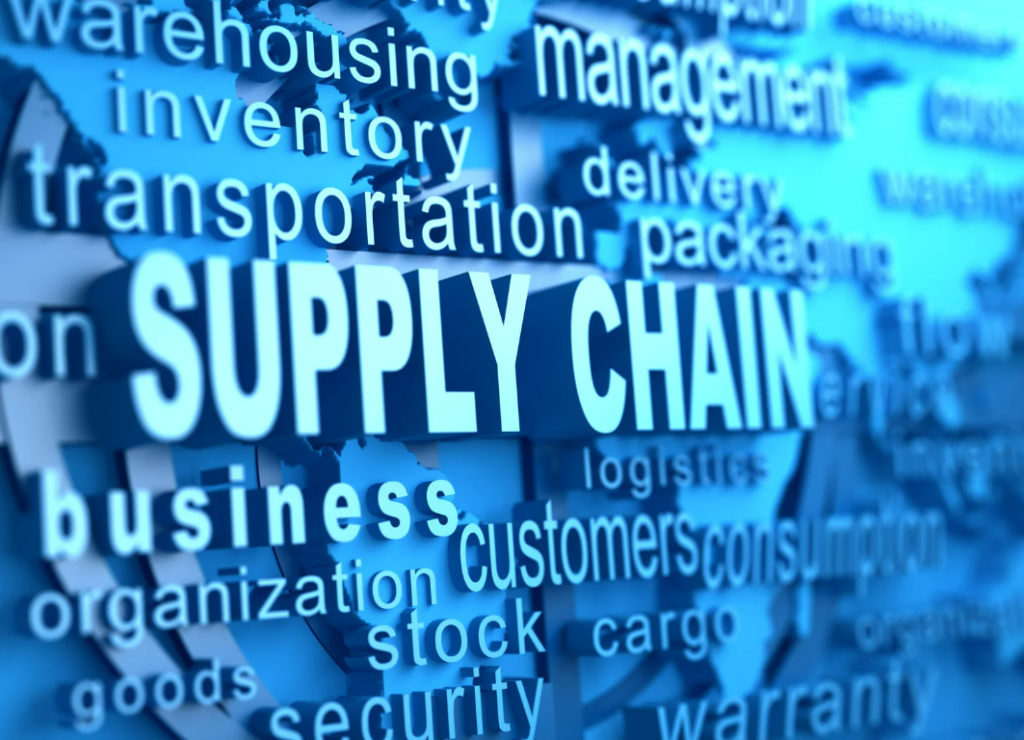Modern business operations hinge on global supply chains: dynamic networks that link companies with resources, manufacturers, and consumers worldwide. In our interconnected economy—where businesses must deliver goods efficiently, satisfy customer demands, and stay market-competitive—these elaborate systems prove essential.
Table of Contents
Through these channels—from sourcing raw materials to distributing finished products—companies access international markets. They leverage cost advantages and innovate at scales previously unimaginable.
These systems underpin the seamless flow of goods and services that fuel industries globally; without them—economic growth and development would falter, highlighting their crucial role.

Global Supply Chain Issues and Finding the Right Supplier
Managing global supply chains presents significant challenges. Coordinating multiple suppliers, navigating international regulations, and responding to unforeseen disruptions often strain well-prepared organizations.
Moreover, trade restrictions, geopolitical tensions, and fluctuating market conditions frequently create bottlenecks—delaying operations and escalating costs.
Selecting the right supplier—ensuring consistent quality, timely delivery, and adherence to ethical standards—is a cornerstone of operational success in the intricate web of global supply chains; this is critical for maintaining a competitive edge.
Yet securing such a partner demands thorough evaluation based on multiple criteria such as the supplier’s product or service quality, the supplier’s ability to accommodate demand surges during peak seasons, their financial stability, and operational scalability.
In today’s business environment, maintaining ethical and legal standards is also imperative. Companies must answer for their suppliers’ practices, necessitating compliance with labor laws, environmental regulations, and ethical sourcing principles.
In order for businesses to ensure their suppliers eschew exploitative labor and adopt sustainable production methods, they need to make sure they work with established professionals in this field such as Fusion Worldwide.
Companies must prioritize ethical considerations during supplier selection; failing to do so risks reputational damage and legal consequences—an imperative that underscores the need for due diligence.

The Strategic Value of a Robust Global Supply Chain
A well-structured and efficient global supply chain isn’t just a logistical necessity—it’s the cornerstone of competitive advantage in our interconnected marketplace today.
Businesses investing in optimizing their supply chains harvest significant rewards: cost savings, profitability, enhanced customer satisfaction, and long-term resilience. Below we explore the strategic benefits that a robust supply chain offers businesses aiming for success within a dynamic global economy.
Competitive Advantages of an Efficient Supply Chain
Cost Savings and Profitability
Streamlining processes, minimizing waste, and managing inventory effectively—these measures result in reduced operational costs and enhanced profitability. For instance: implementing just-in-time (JIT) inventory systems not only cuts storage expenses but also ensures product availability on demand.
Leveraging predictive analytics to optimize transportation routes actively reduces fuel expenses and delivery times; these cost-saving measures improve the bottom line and liberate resources for reinvestment in business innovation or market expansion.
Effective supplier partnerships significantly impact cost management: long-term collaborations with dependable suppliers typically yield bulk discounts, improved payment terms, and coordinated risk mitigation strategies.
Walmart exemplifies this strategy by sustaining competitive pricing through robust, optimized supplier networks. Reducing costs without compromising quality significantly drives profitability and market differentiation in a hyper-competitive market.
Enhanced Customer Satisfaction
In today’s consumer-driven world, seamless delivery of high-quality products and services is paramount for customer satisfaction.An efficient supply chain guarantees businesses the ability to meet demands promptly, consistently, and reliably.
Essential factors such as on-time delivery, accurate order fulfillment, and product availability critically shape customer perceptions and loyalty. Amazon has set a global standard for fast and reliable delivery with its sophisticated supply chain and logistics network; this creates unmatched customer satisfaction and trust.
Furthermore, consumers prioritize transparency and traceability in supply chains; modern customers seek to understand the origins of their products, the manufacturing processes used, and whether these align with ethical and environmental standards.
Companies employing technologies such as blockchain to offer this openness not only bolster customer trust but also distinguish themselves in a competitive marketplace. A robust customer satisfaction yields repeat business, fosters positive word-of-mouth, and bolsters brand reputation—crucial elements for sustained growth.
Contribution to Long-Term Business Growth and Resilience
A robust global supply chain critically enables long-term business growth and resilience; in a world marked by volatility—economic shifts, geopolitical tensions, or climate-related disruptions—companies with well-designed supply chains adapt and thrive readily.
Future-proofing their supply chains involves diversifying suppliers, investing in resilient infrastructure, and employing advanced technologies such as artificial intelligence (AI) for predictive analytics.
Resilient supply chains not only maintain operational stability but also drive innovation. Companies, with uninterrupted production, can concentrate on creating new products; they expand into fresh markets and delve into new opportunities.
Apple’s worldwide network exemplifies this by guaranteeing the smooth manufacture of devices while enabling large-scale product launches that meet international demands without major interruptions. Businesses that strive to preserve a competitive edge in the ever-shifting marketplace must exhibit adaptability and foresight: these traits are vital.

Conclusion
Modern business thrives on global supply chains—vital networks that empower companies to deliver products and services across borders and time zones efficiently; they have transformed operational models, granting unmatched access to international markets, diverse talent pools, and cost-effective resources.
Yet with businesses ever more dependent on these intricate webs of connections—the significance of crafting resilient, efficient, and sustainable supply chains emerges as undeniable.
Every step in the supply chain—from sourcing raw materials to delivering finished goods—is crucial for customer satisfaction, profitability, and long-term growth. Mastering this process has become a defining factor for competitive success in an era characterized by swift technological advancements and unpredictable global challenges.



